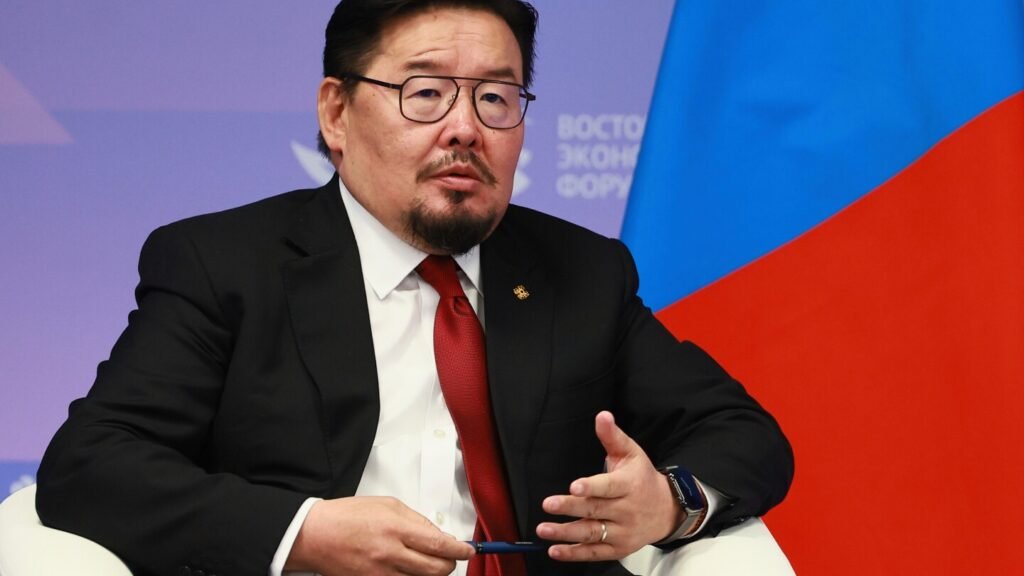Political Turmoil in Mongolia: Prime Minister Ousted in High-Stakes Power Struggle
Overview of the Crisis
In a significant political upheaval, the Mongolian People’s Party has orchestrated a shocking maneuver, resulting in the ousting of Prime Minister Zandanshatar Gombojav. The decision, characterized by its public nature, highlights escalating tensions and power struggles within the ruling party. This critical juncture raises questions about the future governance and stability of Mongolia—a nation grappling with important fiscal decisions as the new budget season approaches.
The Vote to Dismiss Zandanshatar
On a pivotal Friday, the parliament of Mongolia voted to remove Zandanshatar from office by passing a controversially worded resolution. The implications of this vote extend beyond individual leadership, striking at the heart of party dynamics and governance. Additionally, the parliament approved the resignation of its speaker, Amarbayasgalan Dashzegve, who emerged as Zandanshatar’s principal rival in the internal conflict.
Zandanshatar has been serving as Prime Minister since June of this year, and it remains uncertain who will take over his role or whether he will contest his dismissal. The prime minister is currently serving in an acting capacity until a suitable successor is appointed.
Internal Party Conflict Worsens
The struggle for power in Mongolia intensified following Zandanshatar’s loss in a party leadership election to Amarbayasgalan. The fallout from this electoral defeat precipitated accusations of corruption against the speaker, particularly linked to the coal mining sector. In response, a government investigation was launched, further escalating tensions within the ruling party.
"The obsession for power among those who lost the election is unlawfully influencing law enforcement agencies," Amarbayasgalan criticized during a session prior to his resignation as speaker, asserting his intent to defend parliamentary democracy.
Critical Timing for Governance
This political infighting emerges at a crucial moment—Mongolia is on the brink of passing its budget for the coming year. The gridlock has led to teacher strikes demanding salary increases, and medical professionals are also threatening to follow suit unless their needs are addressed. Amid these pressing social demands, the political impasse could stymie progress on essential reforms and fiscal planning.
Zandanshatar addressed the parliament before the vote, stating, “We are fighting against the theft of the nation’s wealth that has robbed every Mongolian.” His remarks pointed to the urgency of addressing public grievances while navigating the complex political landscape.
The Mechanics of the Vote
The parliamentary vote to dismiss Zandanshatar was no small feat. Initially, a parliamentary committee voted against his removal, but the full parliament proceeded to conduct a vote that openly disregarded this prior decision. Notably, members who abstained from voting were counted as “no” votes, resulting in a clear outcome that led to Zandanshatar’s dismissal.
Despite efforts to delay the vote by some of the prime minister’s supporters—who boycotted the session to prevent a quorum—the outcome ultimately reflected a significant majority against him.
Conclusion
As Mongolia navigates this period of political uncertainty, the actions of its leaders will undoubtedly impact the future governance and economic health of the nation. With the prime minister ousted and a critical budget awaiting approval, the focus will now shift to who may step in as his successor and how the ruling Mongolian People’s Party will stabilize its internal conflicts.
As the nation watches keenly, the political developments in Mongolia signify a broader narrative of governance challenges facing democracies globally. The stakes are high, as public sentiment grows restless against a backdrop of unmet promises and pending reforms.
For those seeking further information on the ongoing political situation in Mongolia, AP News provides in-depth updates on developing stories and insights.


